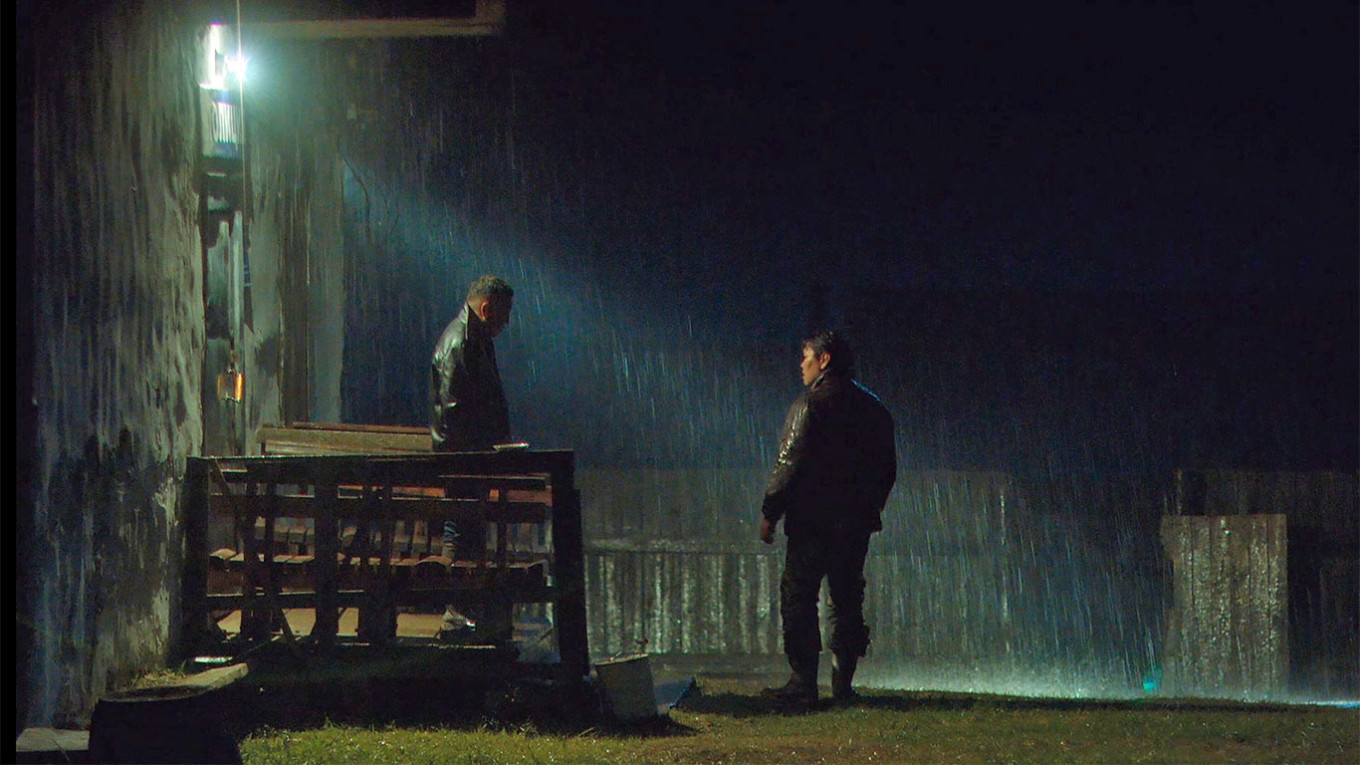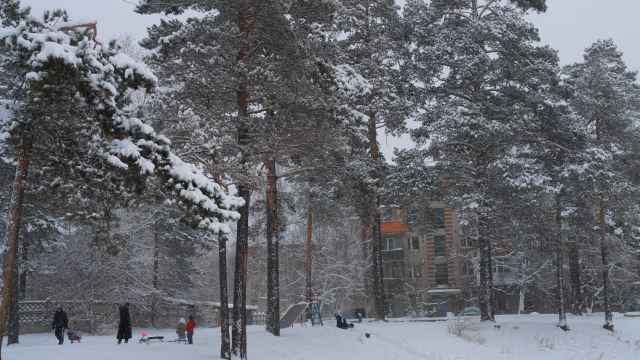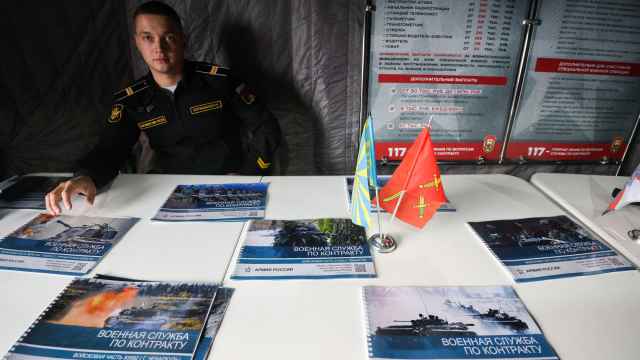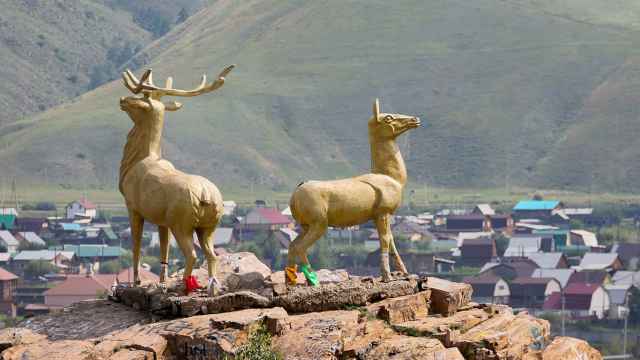For nearly two months now dedicated cinephiles in Russia have been engrossed in a public row over the fate of “Ayta,” an award-winning thriller by Yakutian director Stepan Burnashev.
The movie was effectively banned by the Kremlin in September in a move that caused widespread public outrage and made many fear for the future of regional film industries.
In the latest turn of events, Alexander Dyukov, a member of the Presidential Commission on Interethnic Relations, last week described “Ayta” as “textbook nationalistic cinema.”
“This is a perfect example of a nationalistic movie, filmed in an ethnocratic republic where silent ethnic cleansing has already taken place: within 30 years, the number of Russians [living in Yakutia] has decreased by exactly half,” Dyukov wrote to his over 18,000 subscribers on Telegram.
“Ayta,” which has become the highest-grossing film ever in the Far East republic of Sakha (Yakutia), tells the story of a standoff between indigenous residents of a Yakutian village and an ethnic Russian policeman wrongfully accused of raping and killing a local teen girl.
Though Burnashev himself said “Ayta” is a cautionary tale about the dangers of harboring ethnic and racial prejudices and fostering divisions along ethnic lines, Russian government regulators found traces of “destructive information that contradicts the principles of unity among the ethnic groups of Russia” in the film.
In September, Burnashev’s film was removed from all Russian online streaming platforms by order of state media regulator Roskomnadzor, and Russia’s Culture Ministry revoked the movie’s distribution license.
“People in Yakutia were outraged by unreasonable accusations of excessive nationalism and attempts to marginalize the entire nation,” said Sargylana Kondakova, co-founder of the region’s largest anti-war movement, the Free Yakutia Foundation.
“Yakutian film is a major part of our culture,” Kondakova told The Moscow Times. “It is Yakutian and not American or Russian movies that attract a full house at local theaters. These are movies about us and in the Sakha language.”
Yakutia is not folding under the pressure. Yakutsk Vecherny, one of Sakha’s largest publications, responded to the Roskomnadzor ban with a special issue titled “Roskompozor” — a play on words that combines the media watchdog’s title with the Russian word for “shame.”
The republic’s Kremlin-aligned head Aysen Nikolaev made a public statement in support of “Ayta” and another film, “Kandidat.” “Kandidat,” a comedy also made in Yakutia, was denied a distribution license for allegedly violating the country’s LGBT propaganda law by featuring a female character played by a male actor.
“Today, we are actually creating [our own] movie industry…[Some people] started praising and respecting us, while others began to fear. Steps are being taken to limit the reach of our cinema,” Nikolaev said of the ban in a televised interview.
With the vast majority of money and resources concentrated in the capital Moscow, film industries in most of Russia’s regions and ethnic republics remain grossly underdeveloped.
Yakutia, however, has emerged as a remarkable exception to this rule. Despite their modest budgets and frequent reliance on non-professional actors, films produced in “Sakhawood” have been well received at an array of international film festivals, including in South Korea, Japan, Canada, Finland and Scandinavia.
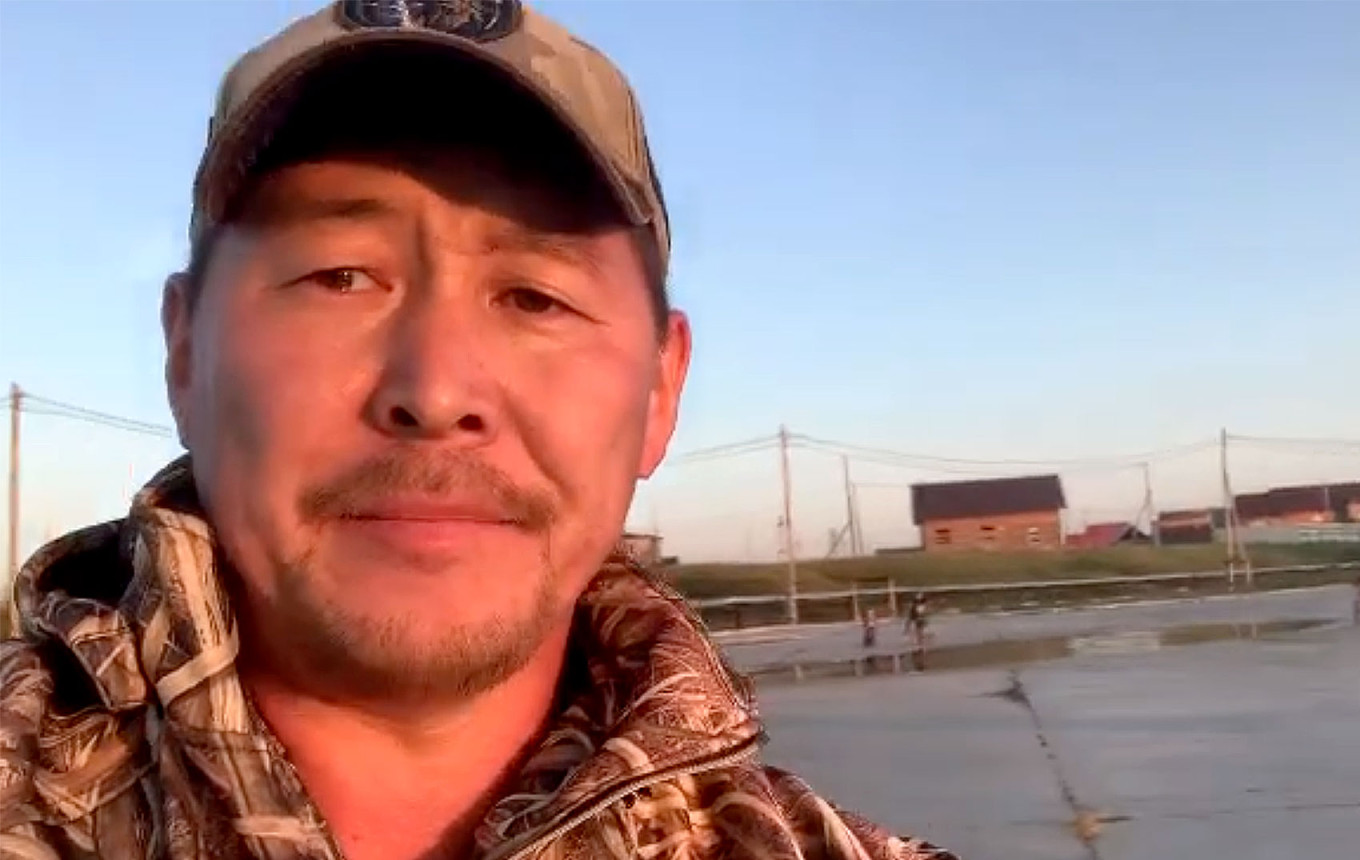
“In places [outside Moscow] everything moves more slowly and there are more difficulties, including to secure funding and to hire a film crew…you have to build everything from ground zero every time,” said Ilshat Rakhimbai, a producer and director from Russia’s republic of Tatarstan.
“From this perspective, everything that is happening in the regions is a form of heroism — including what we did with ‘Mikulai’ or what people do in Yakutia or Bashkortostan. People there are 10 times stronger and more brave than Muscovites,” Rakhimbai added.
After directing this year’s most-talked-about psychological thriller “Mikulai,” Rakhimbai is rightfully considered a trailblazer in the movie industry in his native Tatarstan.
“Mikulai,” which tells the story of an elderly man from a Kryashen (Orthodox Christian Tatar) village in Tatarstan, is a rare regional film featuring celebrity Russian actors and produced with input from renowned Russian-Kazakh film director Timur Bekmambetov.
To finish his debut work with a total budget of about 20 million rubles ($216,000), Rakhimbai launched a crowdfunding campaign and went into debt securing a personal loan to cover more than a quarter of the film’s total budget.
“Not filming ‘Mikulai’ wasn’t an option. I had a feeling that I would die if I didn’t,” Rakhimbai told The Moscow Times.
The lack of funding, however, wasn’t the only issue faced by the young director.
Kryashen activists repeatedly voiced their dissatisfaction with Rakhimbai’s work and in September asked Tatarstan’s authorities to strip “Mikulai” of its distribution license. They maintain that the movie’s plot violates Russia’s law that criminalizes “offending the feelings of religious believers.”
Luckily for Rakhimbai, Tatar and Russian authorities have yet to act on Kryashens’ demands.
“We, of course, had no aim to offend any ethnic group or portray its members in a negative light. We are filmmakers and we are telling a story…to let the audience live through a certain set of emotions,” said Rakhimbai.
The recent ban on Sakha-made films and attempt at censoring “Mikulai” means that the Kremlin is likely paying increasing attention to developments in the regions in search of potential threats to the regime, according to film expert and decolonial theorist Misha Yakovlev.
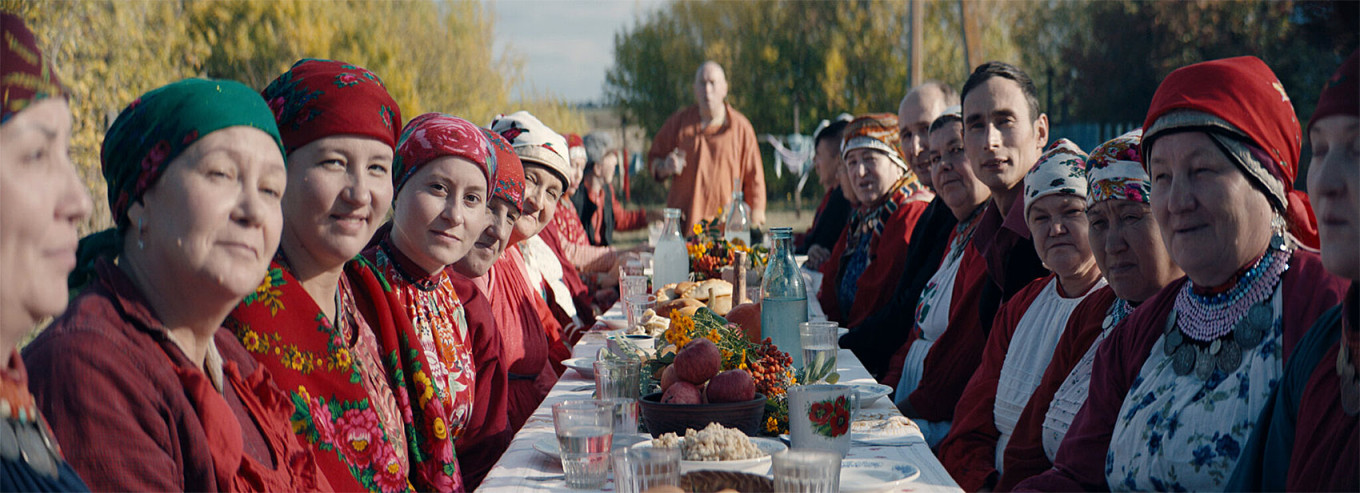
“I think these movies — whether in Russian or in indigenous languages — prompt people to think about their native culture. This, in turn, threatens Russian monoculturalism,” Yakovlev told The Moscow Times. “Yakutian films, for example, show an alternative, indigenous culture, which is now being watched more closely by the Kremlin.”
Yakovlev’s view was echoed by Kondakova of Free Yakutia, who sees the ban on Sakha films as nothing less than “a deliberate crackdown” aimed at “preventing people from reflecting on their life” and “asking uncomfortable questions.”
“‘Ayta,’ for example, raises many important social issues. It is a very honest depiction of life in an ordinary village in Yakutia: Soviet-era buildings, stove heaters, no gas at home, no bridge [over the river],” said Kondakova.
“‘Kandidat’ is also a political film. It makes fun of the very idea of having elections in today’s Russia,” she added.
Both Yakovlev and Kondakova believe that recent events signal darker days for regional film industries. They fear that the new realities will resemble those of the Soviet period: independent films censored rigorously while an increased number of government-funded propaganda-esque motion pictures — including in indigenous languages — will be released.
But not everyone believes the ban of “Ayta” and “Kandidat” to be a part of a deliberate crackdown on non-Russian cultures in Russia.
“There are many movies made in Russia that were denied screening license for one reason or another,” said Yakutia-born filmmaker Vladimir Munkuev, whose film “Nuuccha” won many awards both in Russia and abroad but never made it to screens in Russia after being accused of igniting Russophobia.
“All movies in Russia are under pressure,” said Munkuev.
A Message from The Moscow Times:
Dear readers,
We are facing unprecedented challenges. Russia's Prosecutor General's Office has designated The Moscow Times as an "undesirable" organization, criminalizing our work and putting our staff at risk of prosecution. This follows our earlier unjust labeling as a "foreign agent."
These actions are direct attempts to silence independent journalism in Russia. The authorities claim our work "discredits the decisions of the Russian leadership." We see things differently: we strive to provide accurate, unbiased reporting on Russia.
We, the journalists of The Moscow Times, refuse to be silenced. But to continue our work, we need your help.
Your support, no matter how small, makes a world of difference. If you can, please support us monthly starting from just $2. It's quick to set up, and every contribution makes a significant impact.
By supporting The Moscow Times, you're defending open, independent journalism in the face of repression. Thank you for standing with us.
Remind me later.



